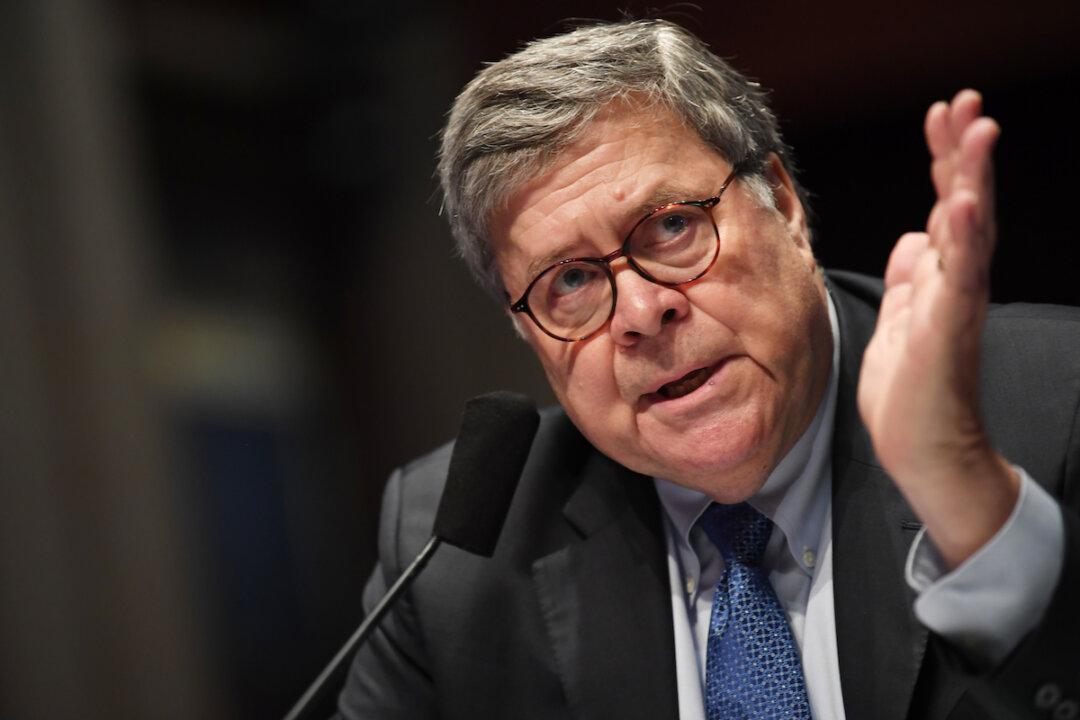Attorney General William Barr defended his independence amid accusations by House Democrats that he had politicized the Justice Department (DOJ) in an effort to secure favors for President Donald Trump.
Barr on Tuesday defended a series of decisions before the House Judiciary Committee, saying that they were made to restore the rule of law and ensure the administration of one system of justice. His appearance before the committee was highly anticipated after the department garnered intense scrutiny for actions taken that appeared to benefit the president and his allies.




